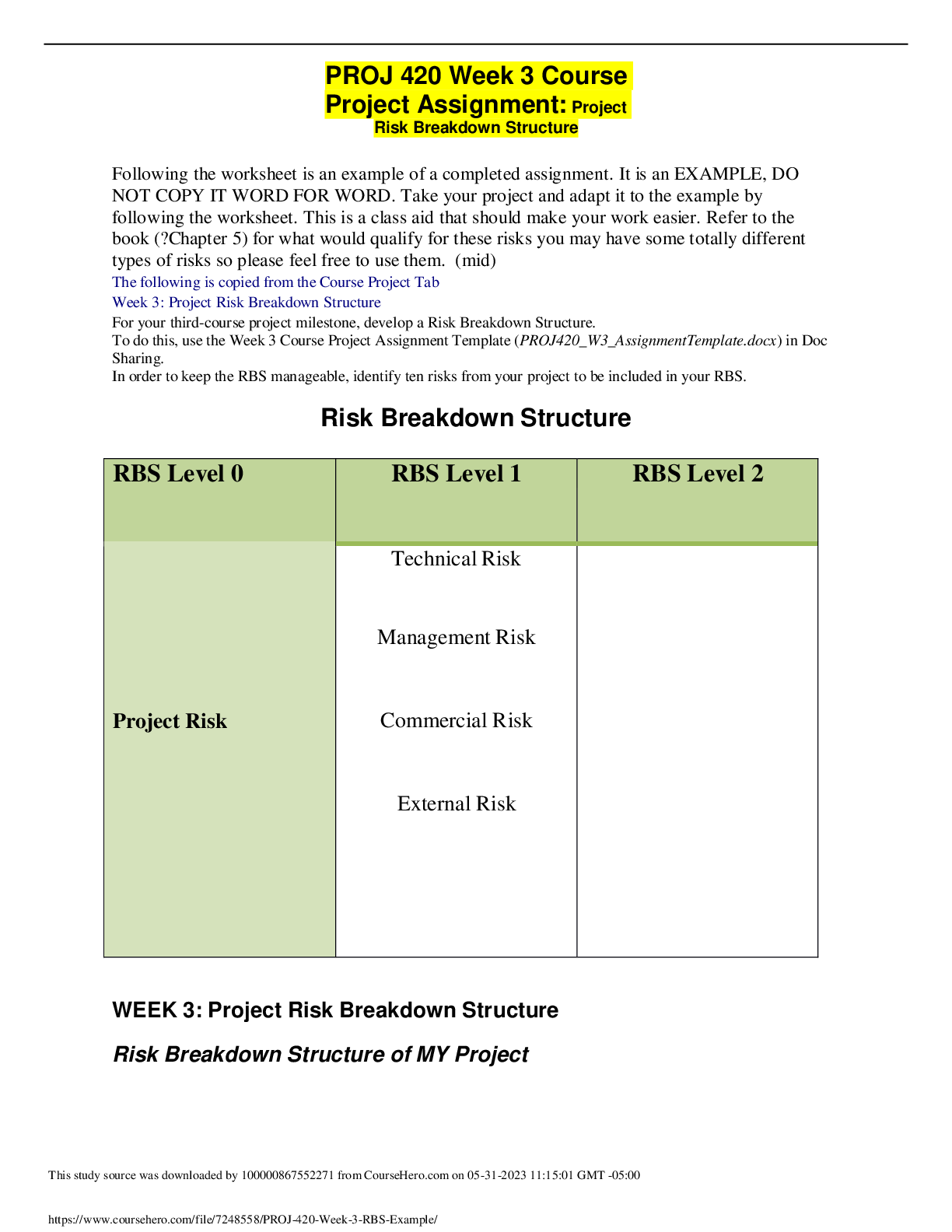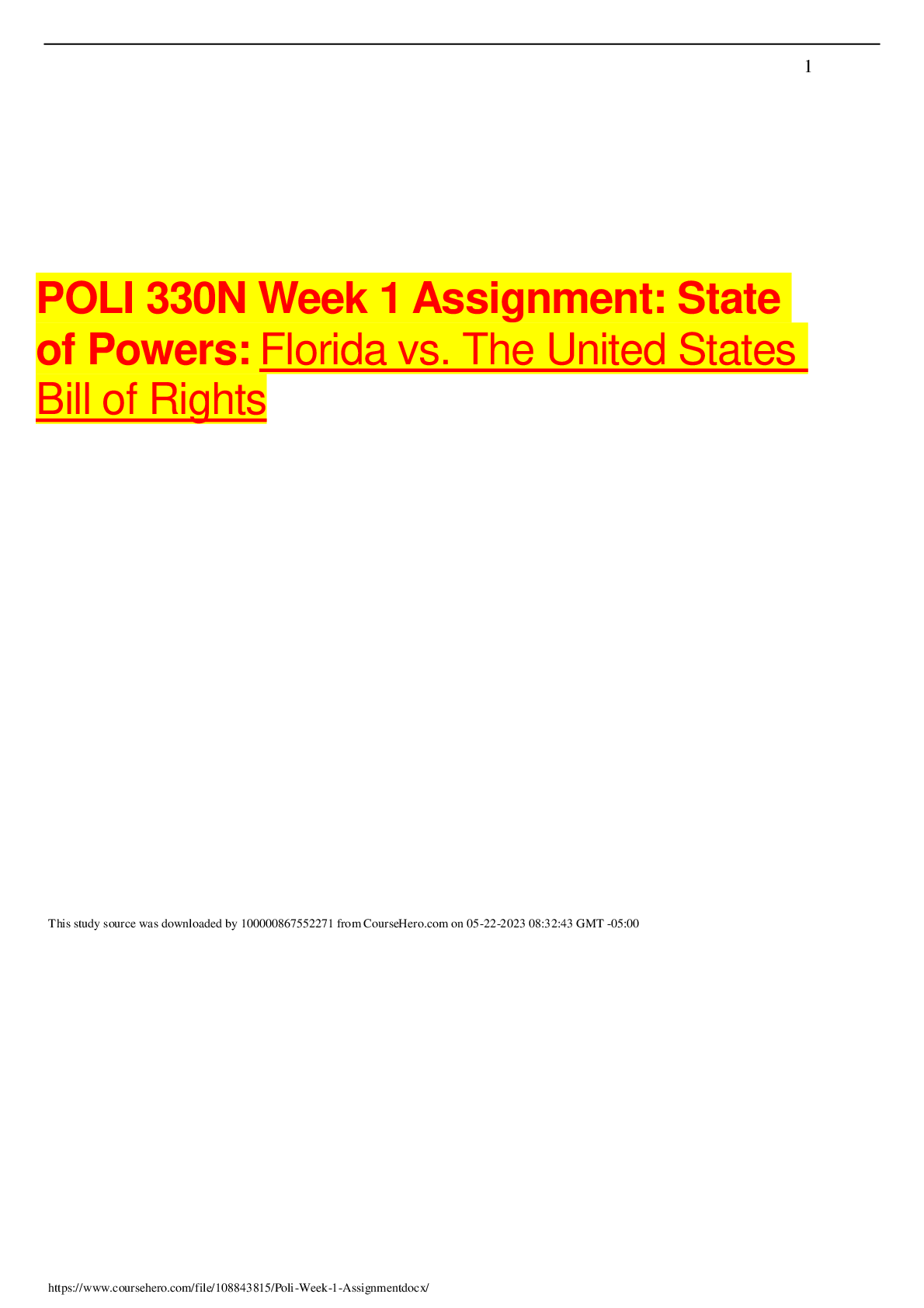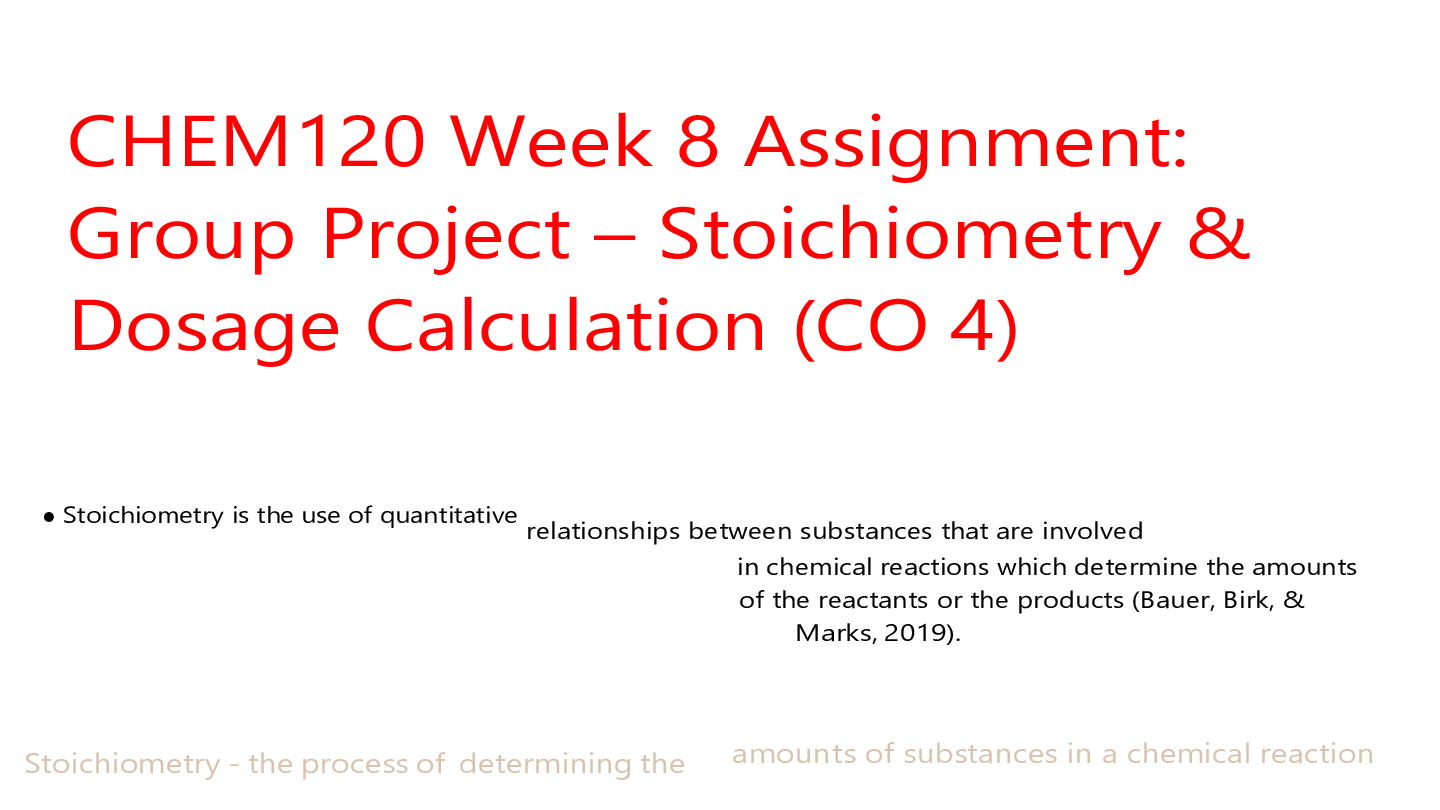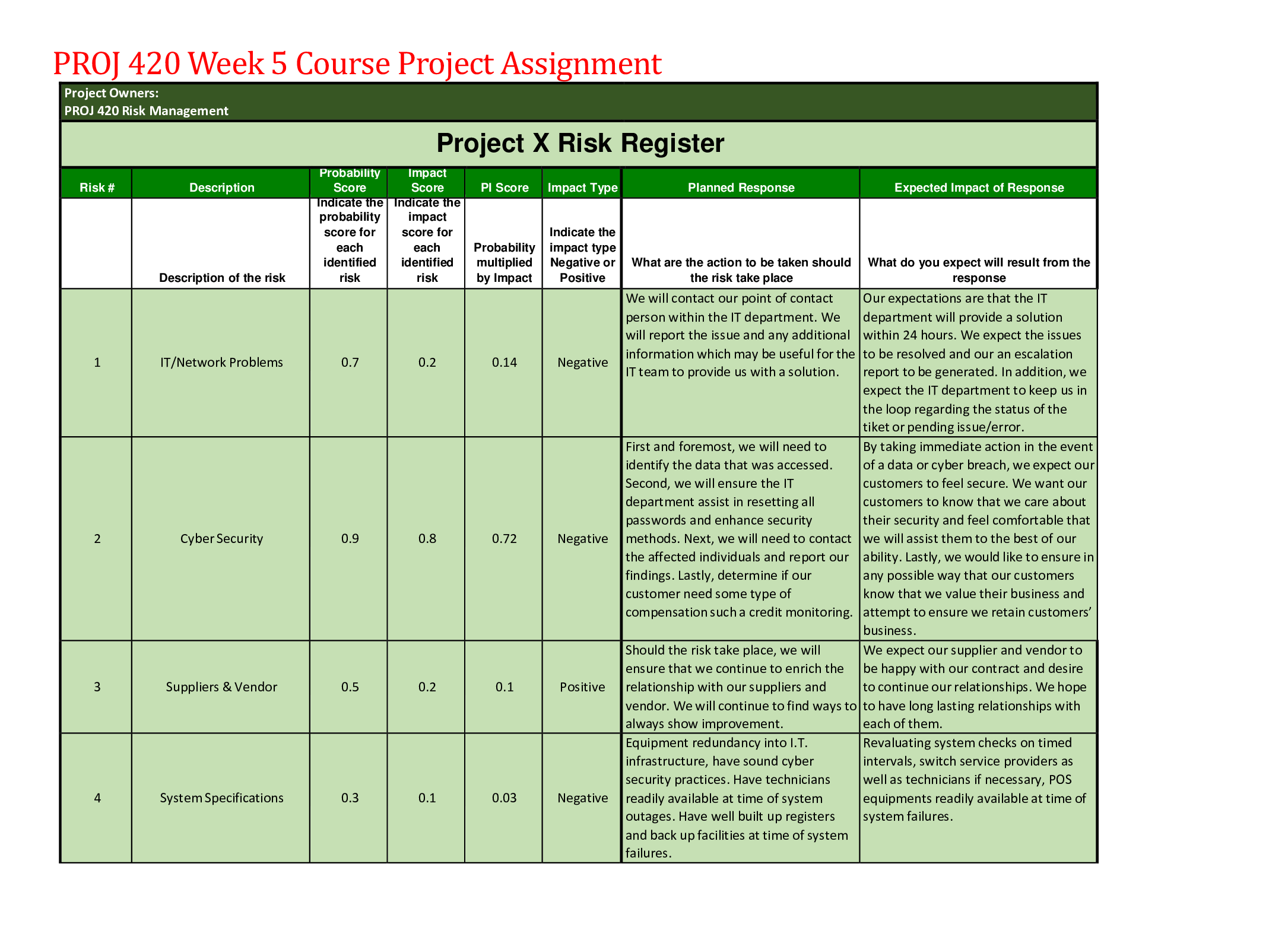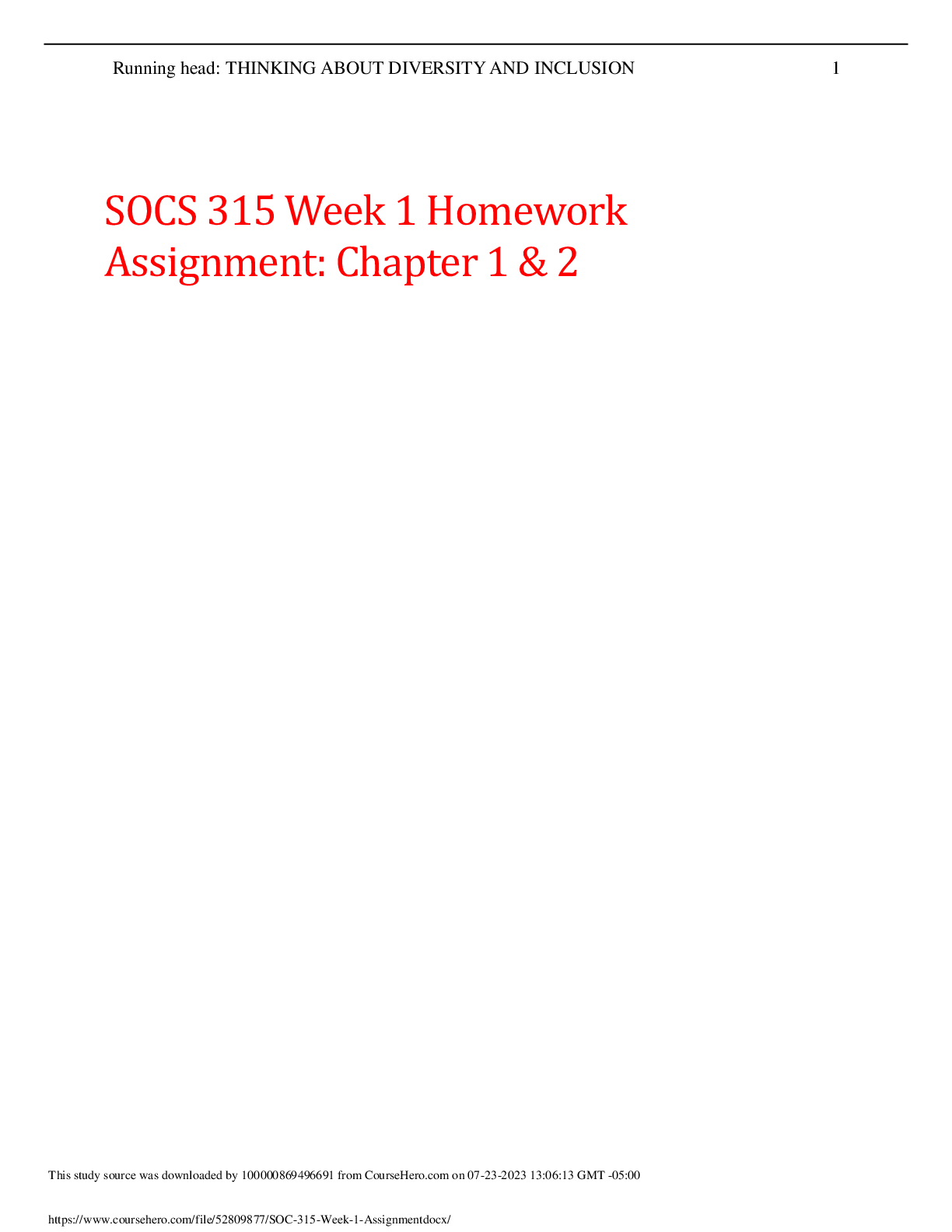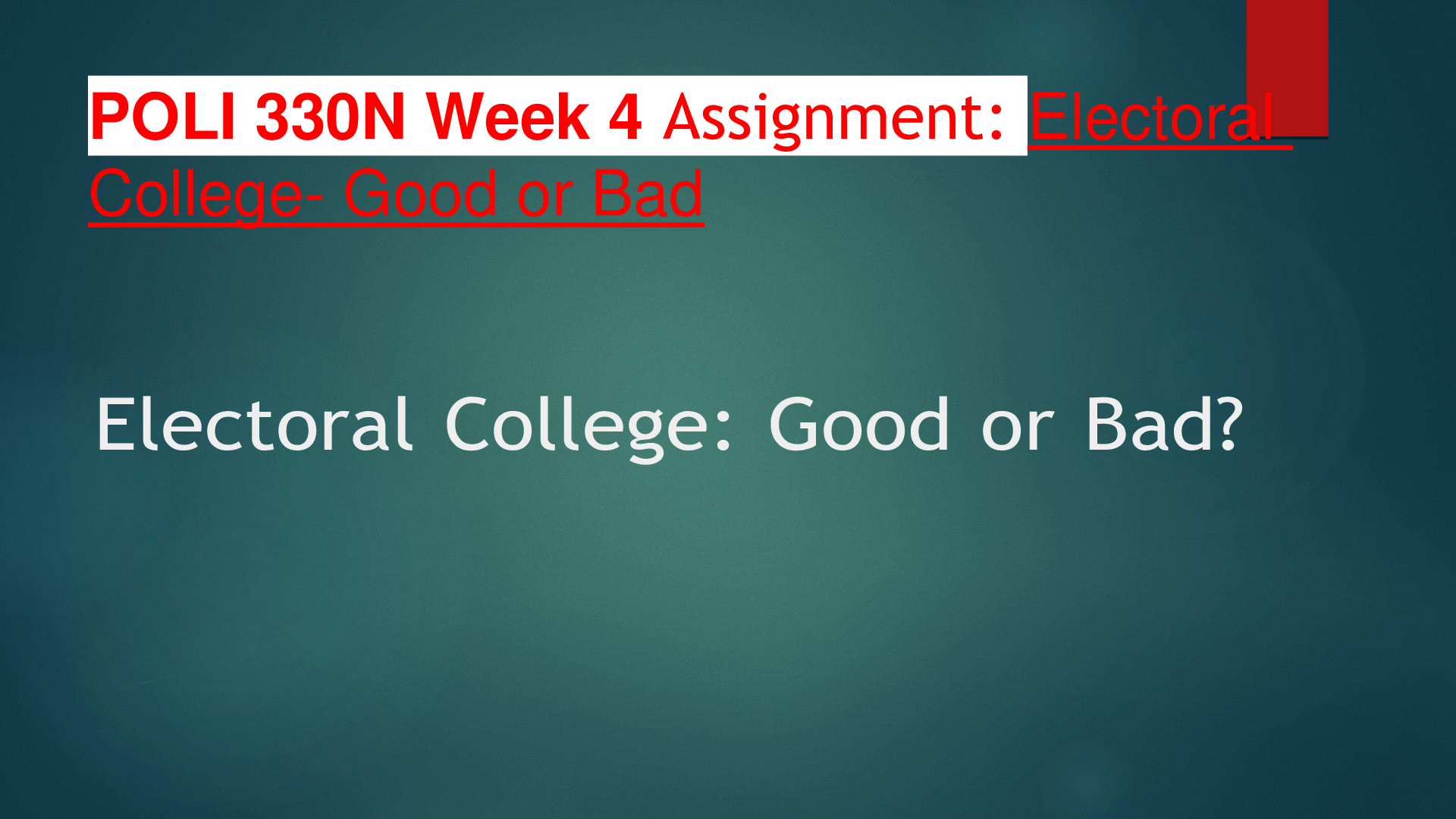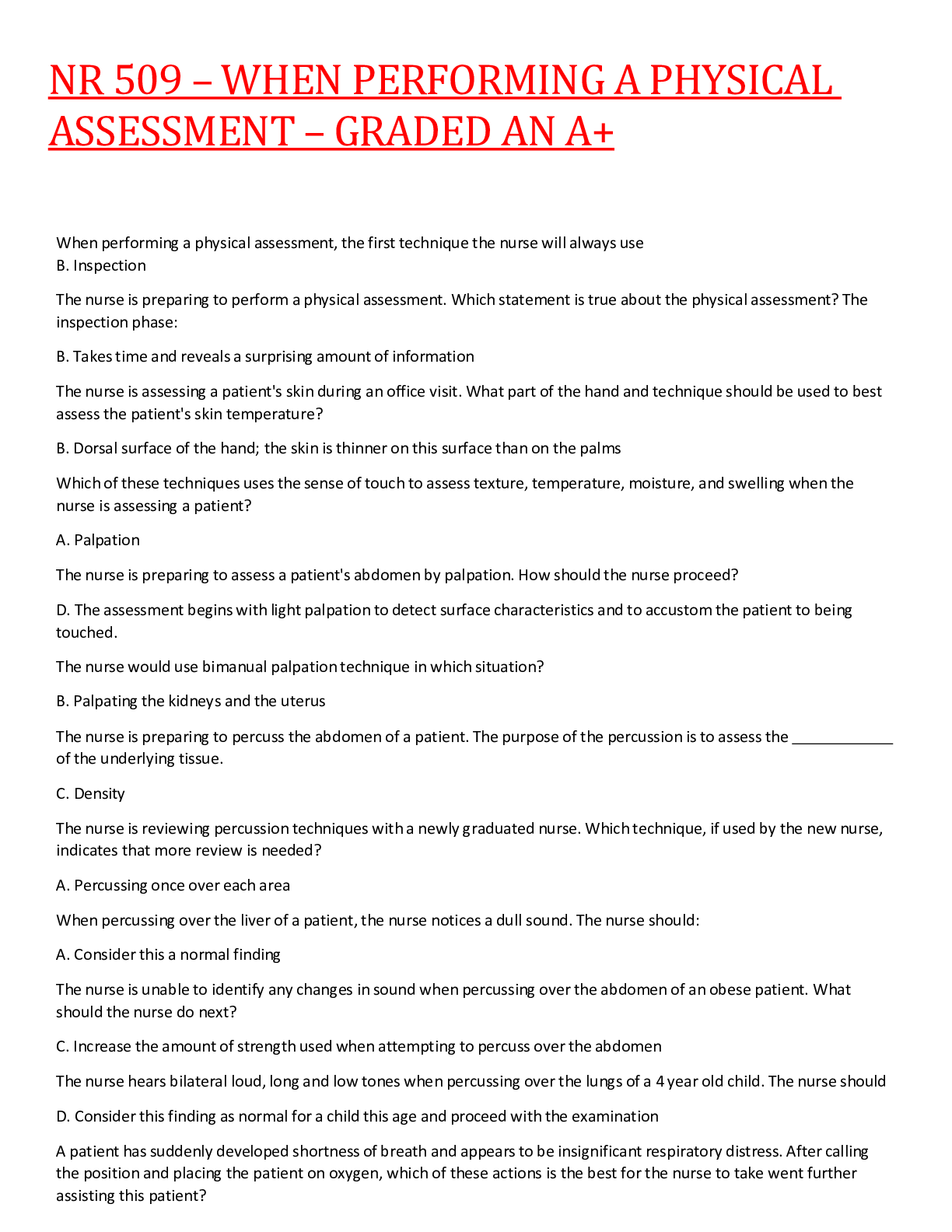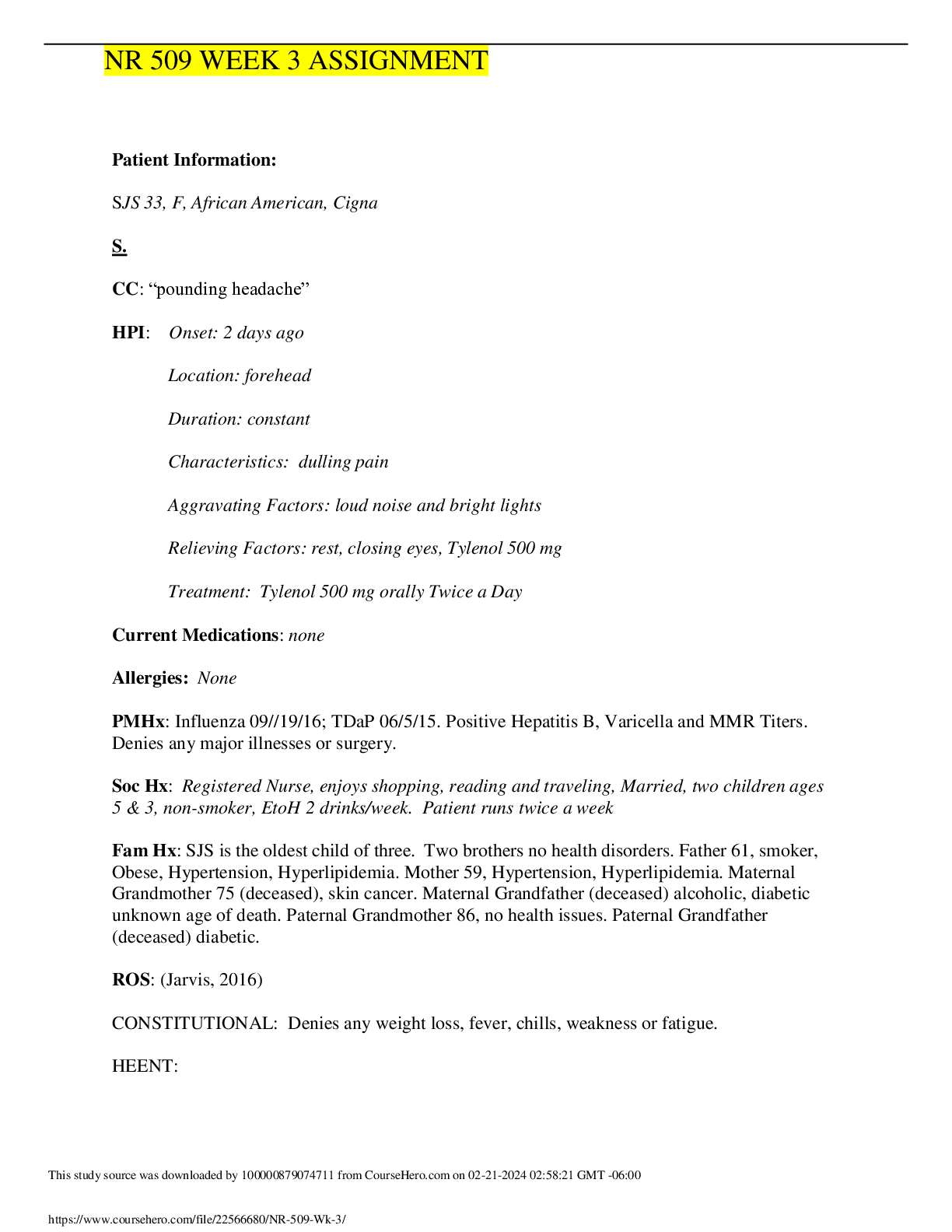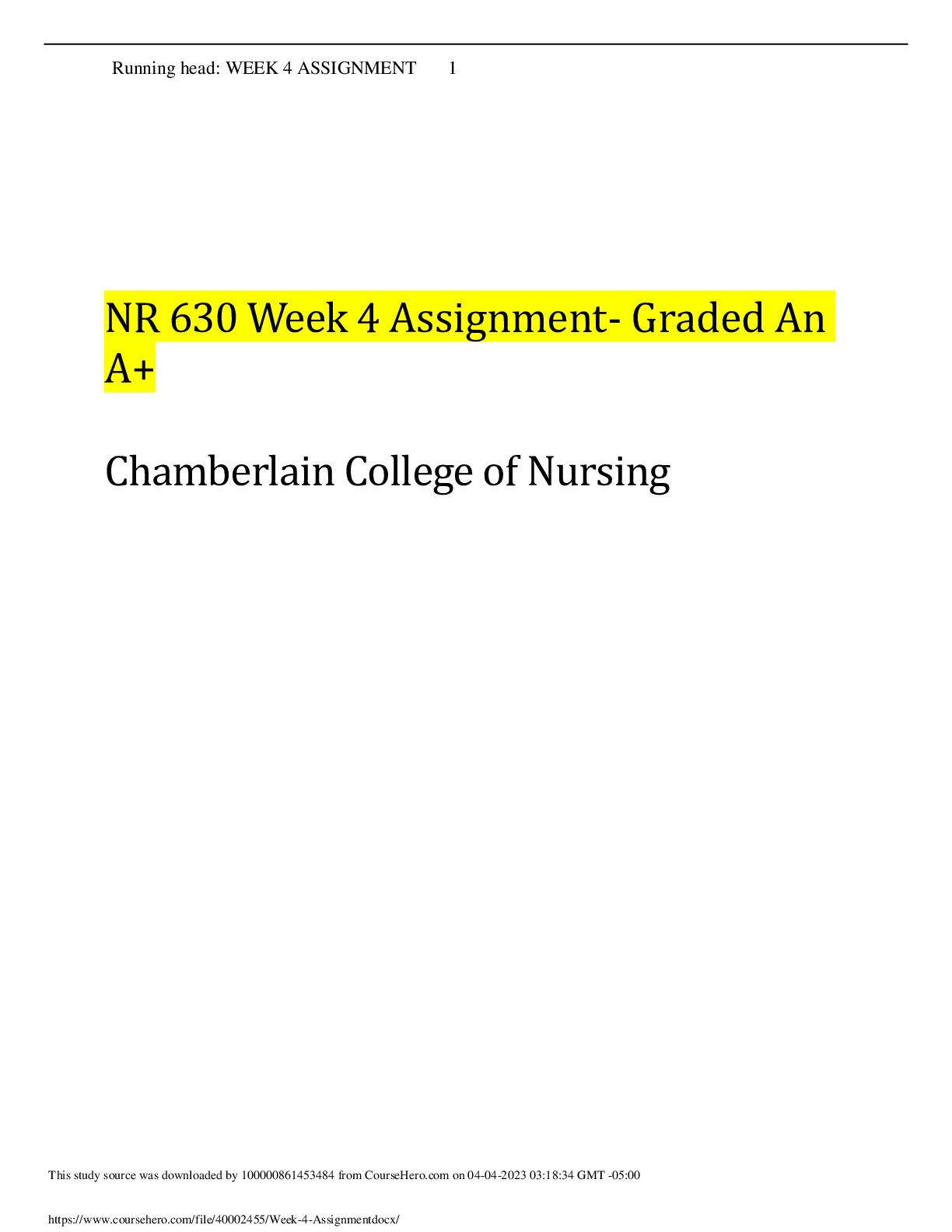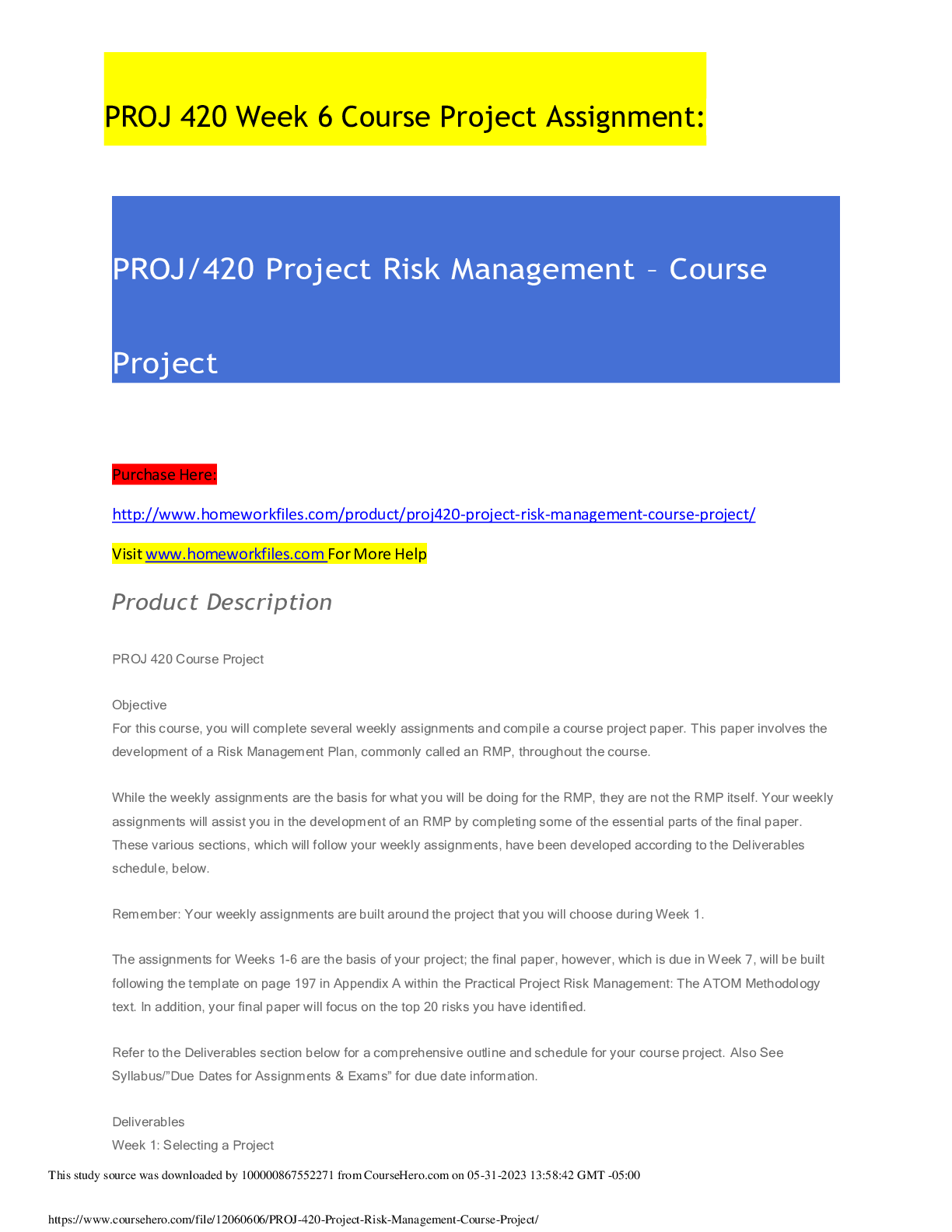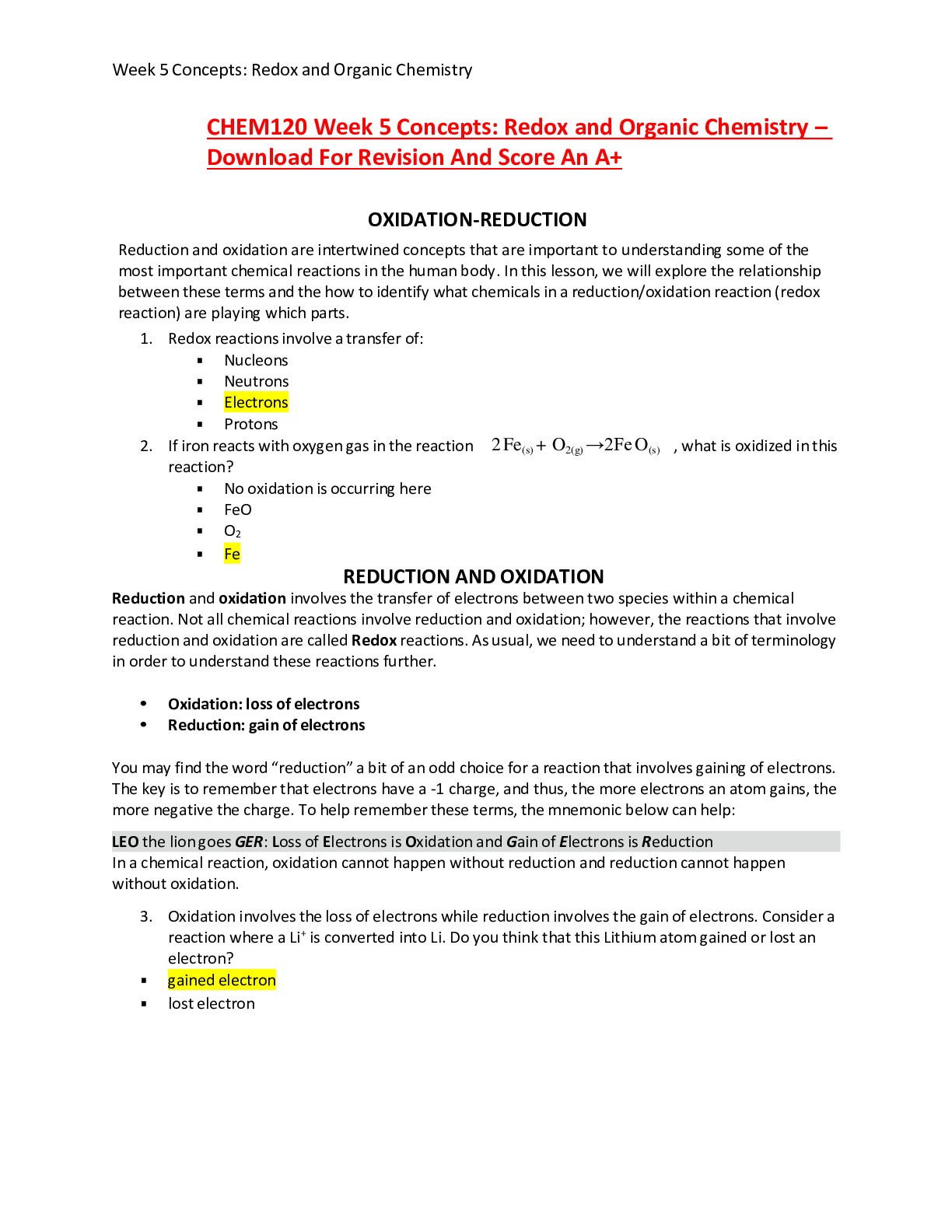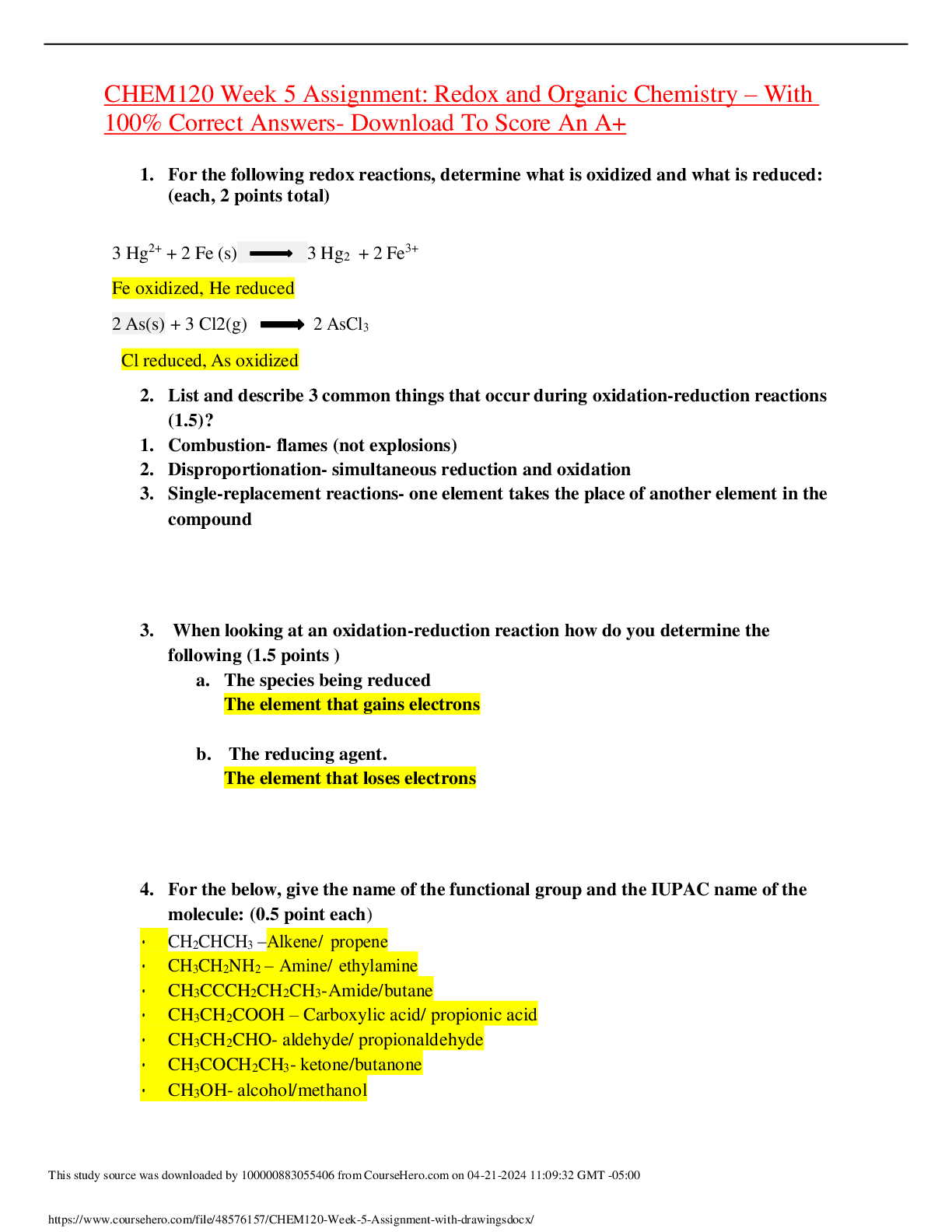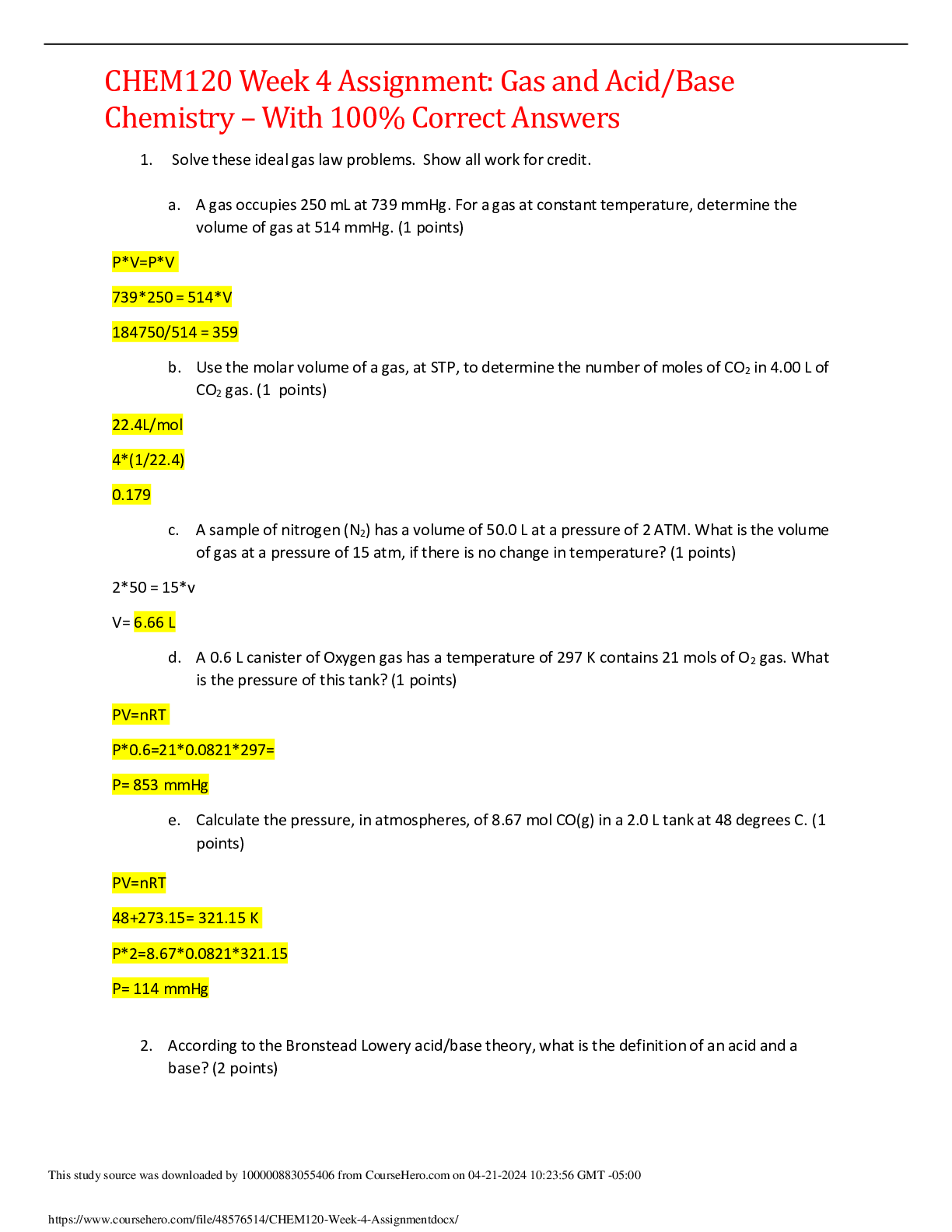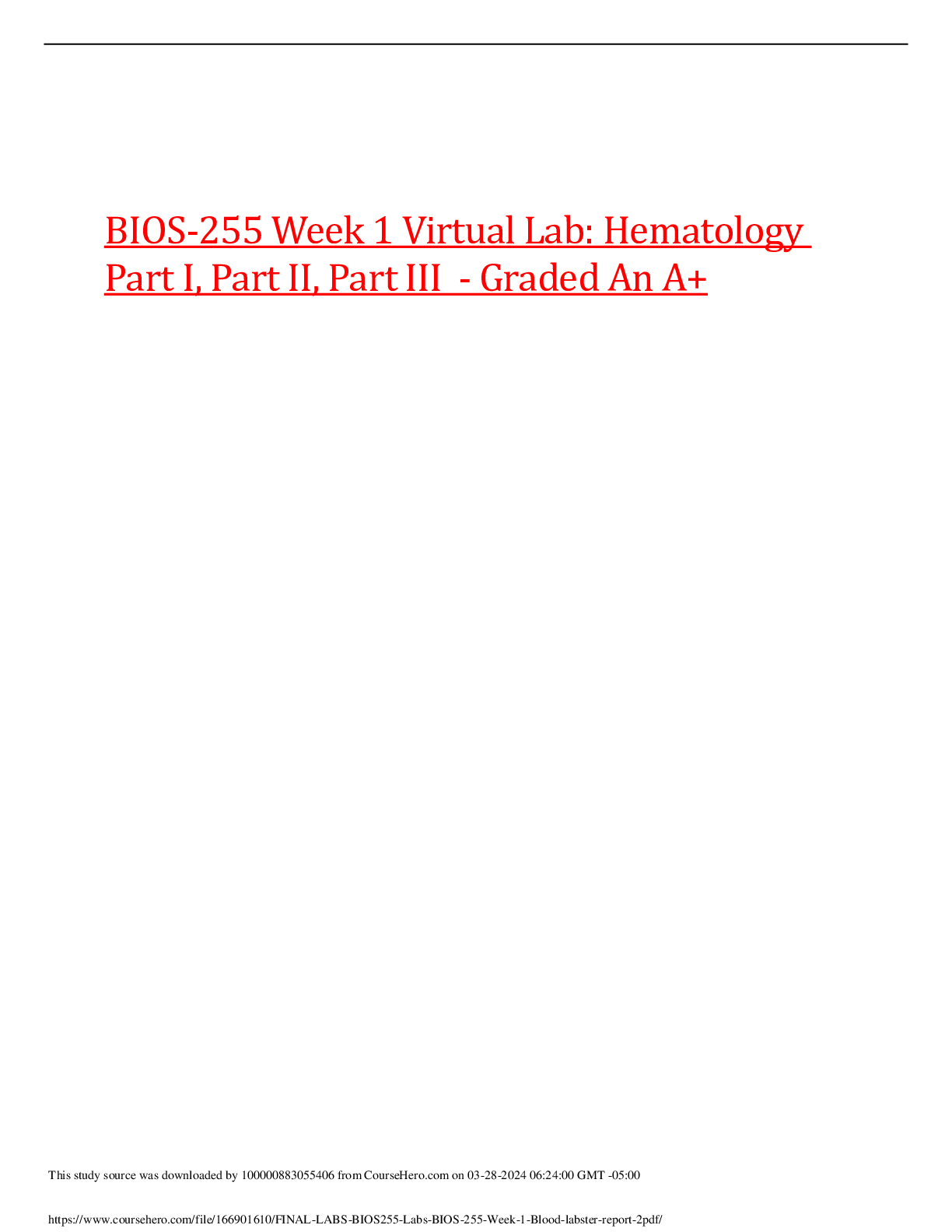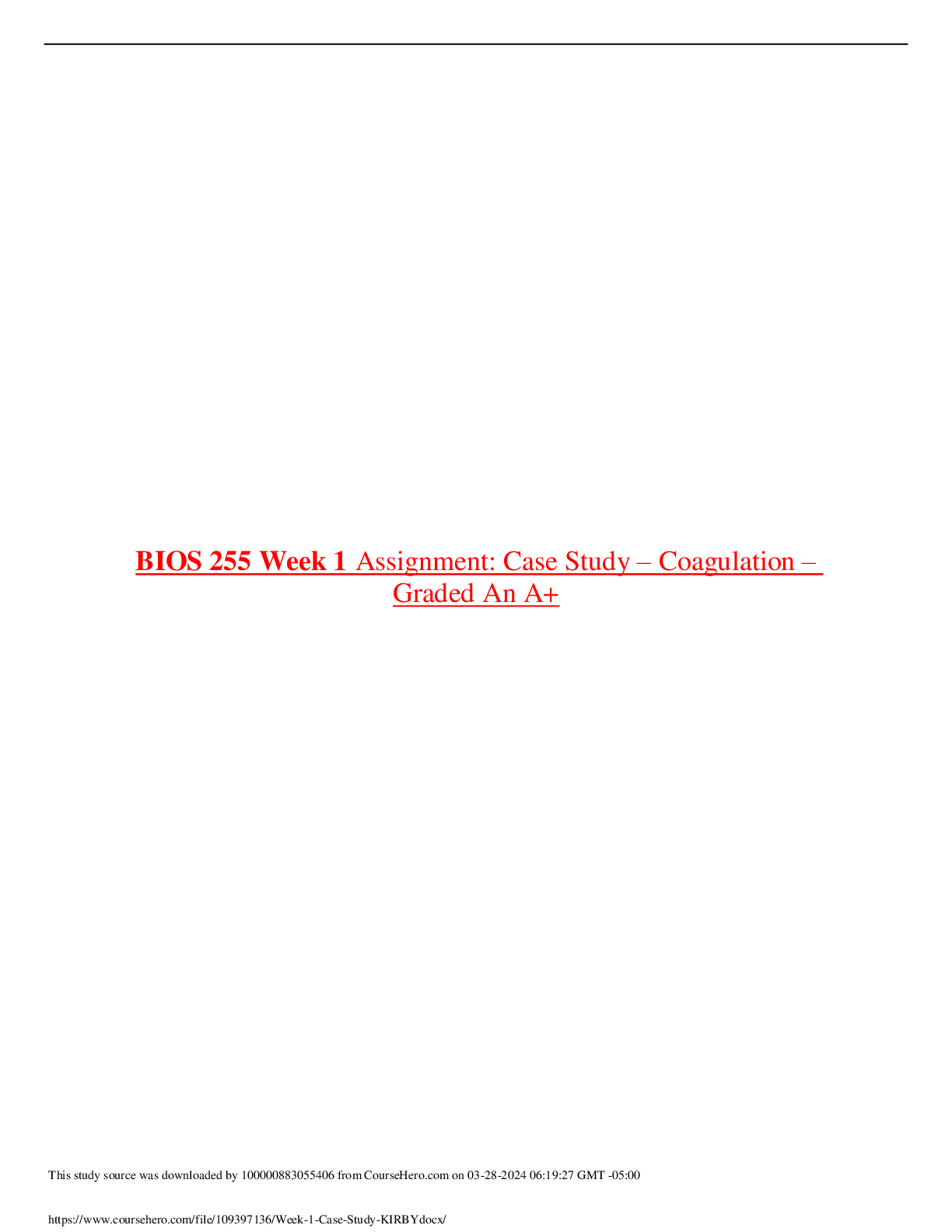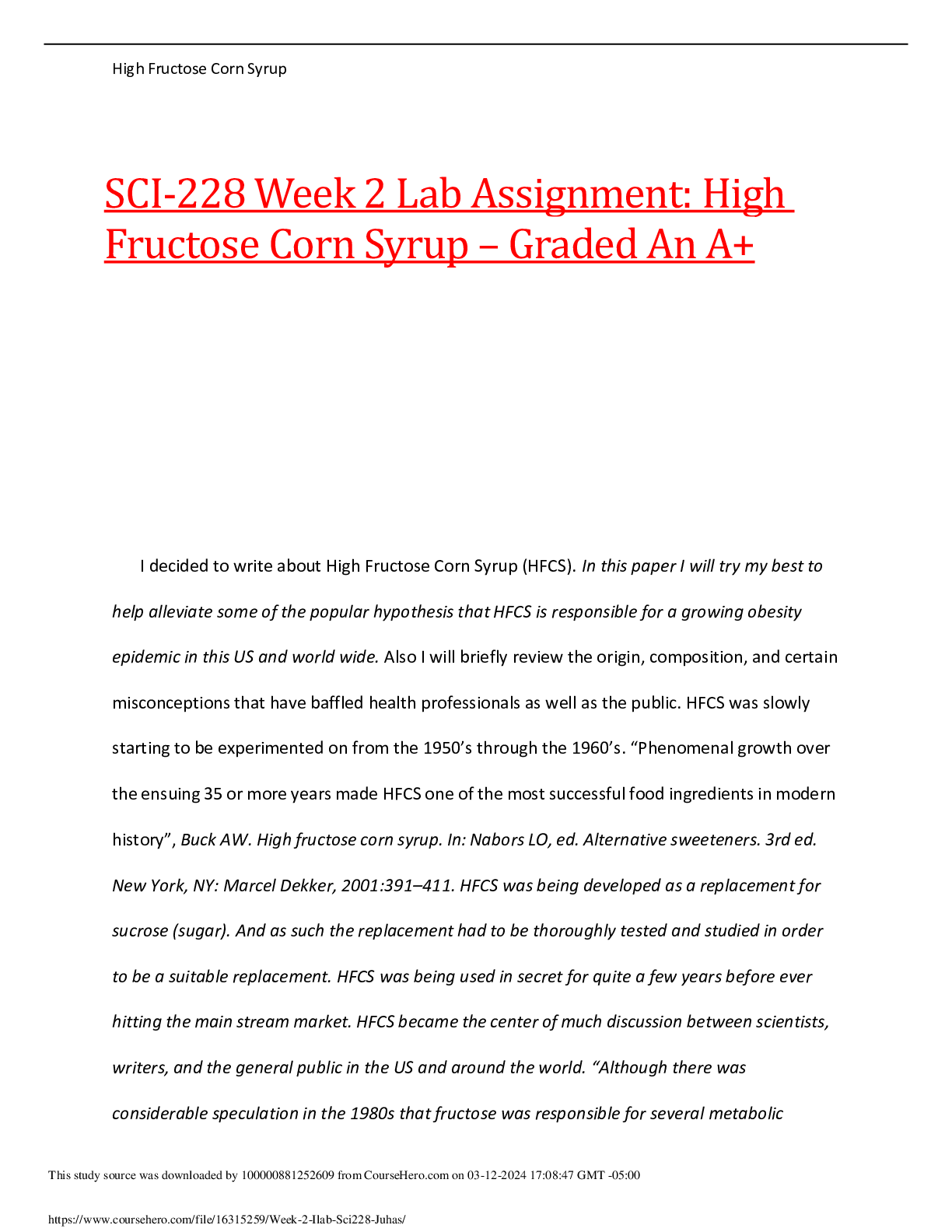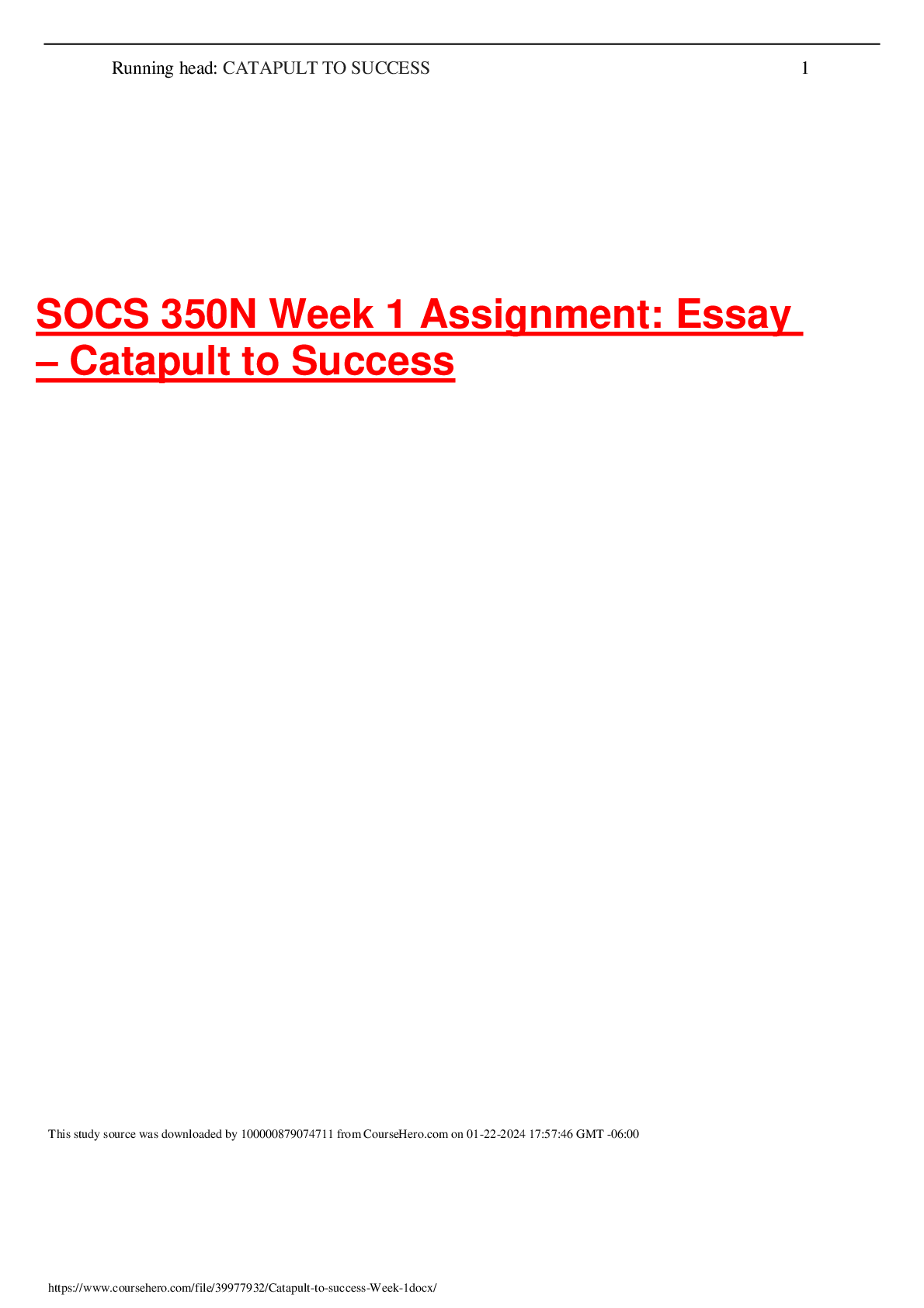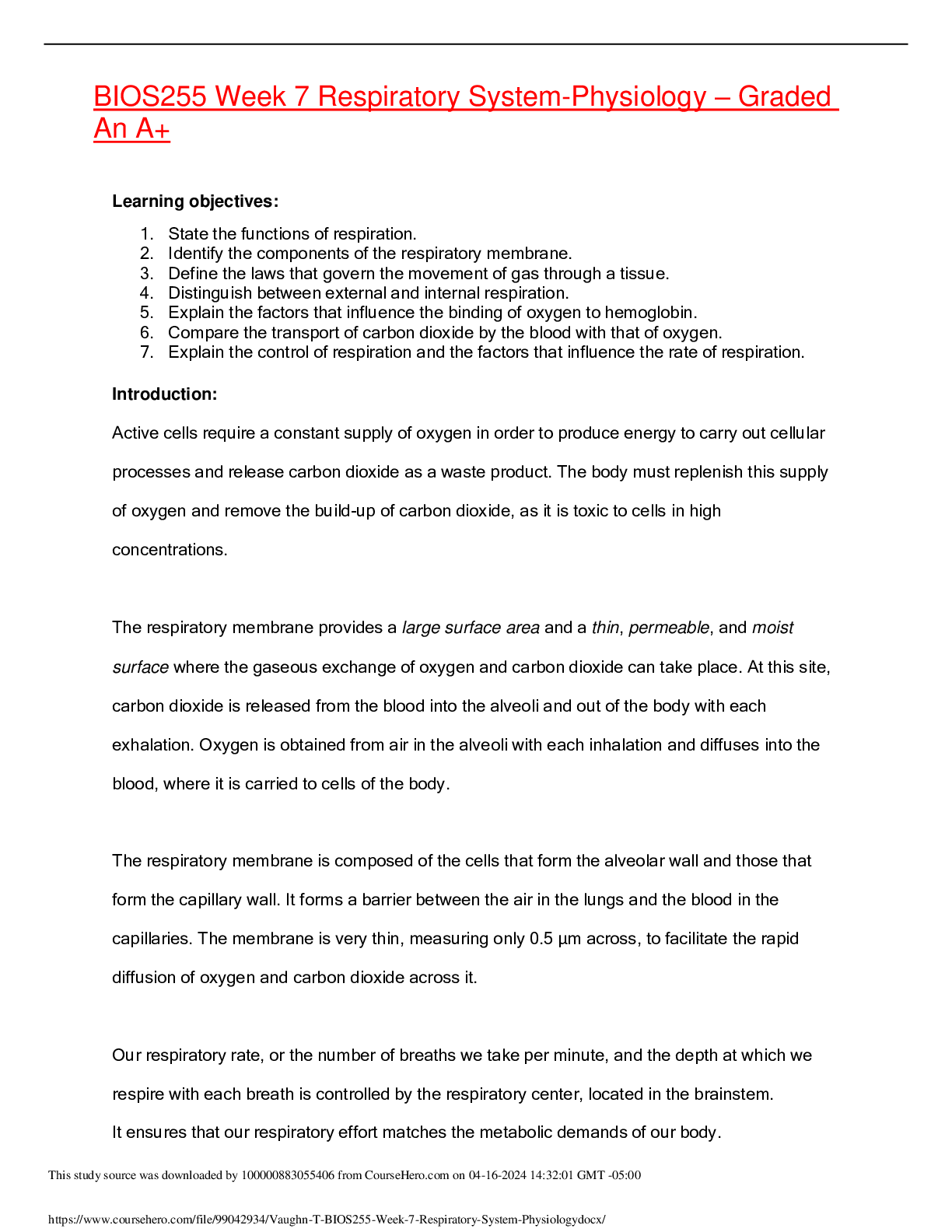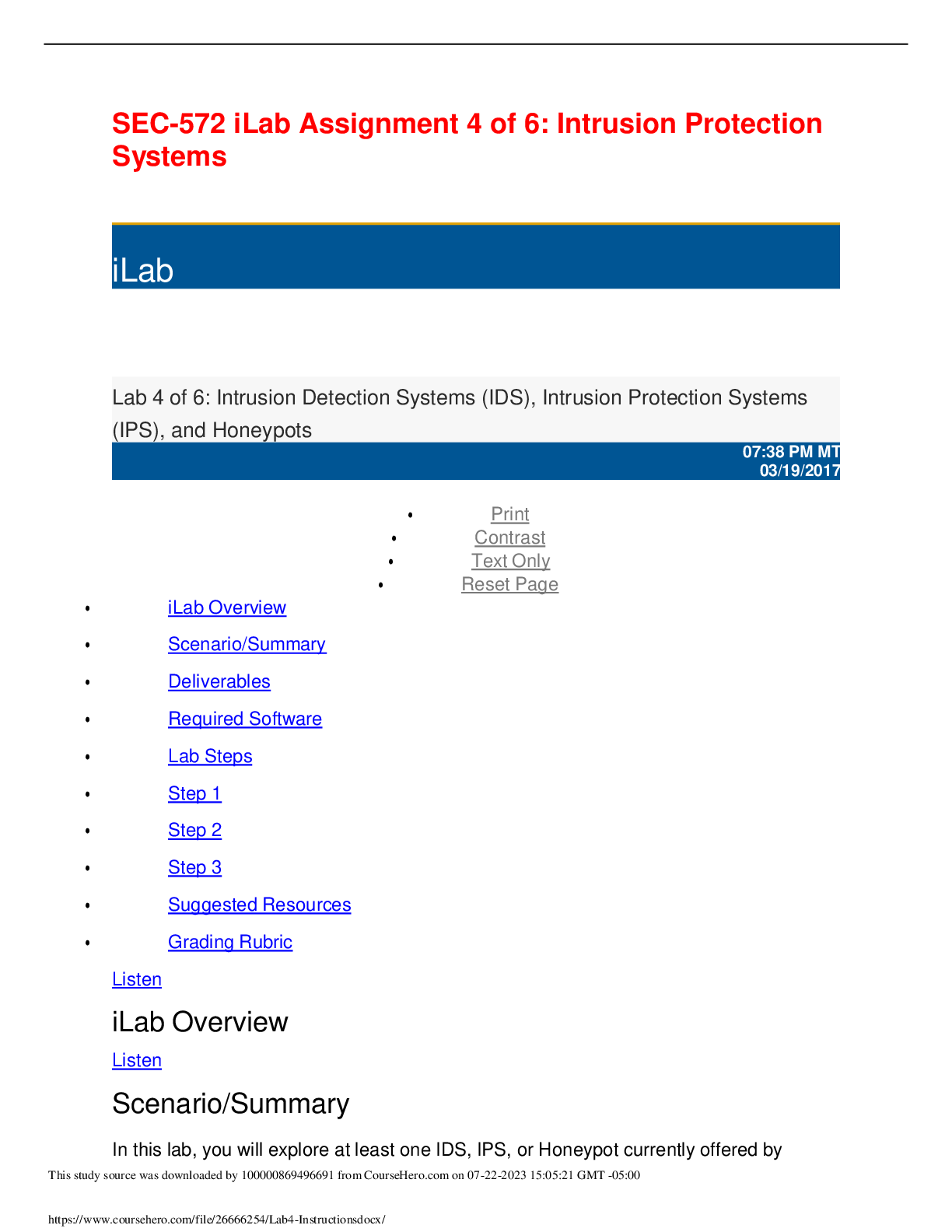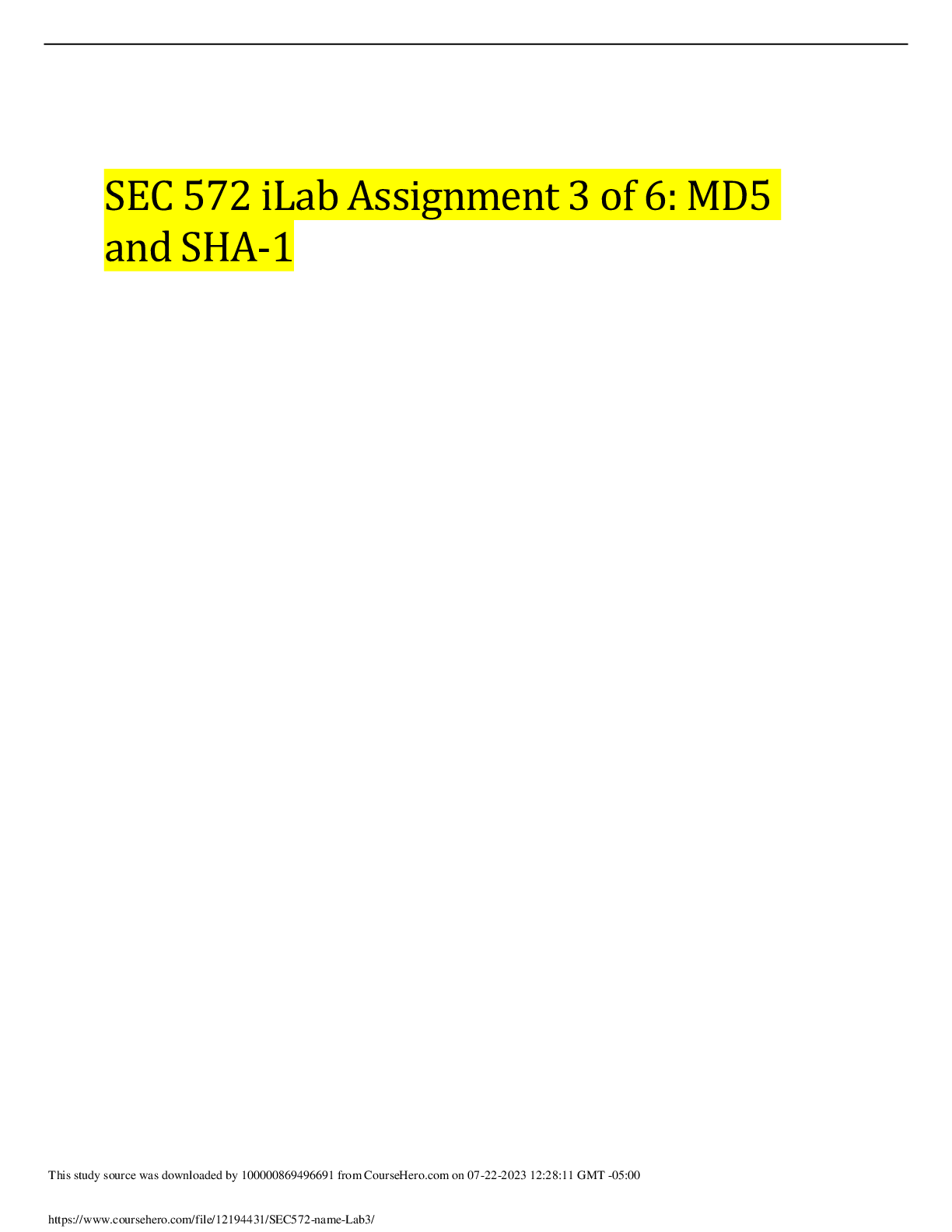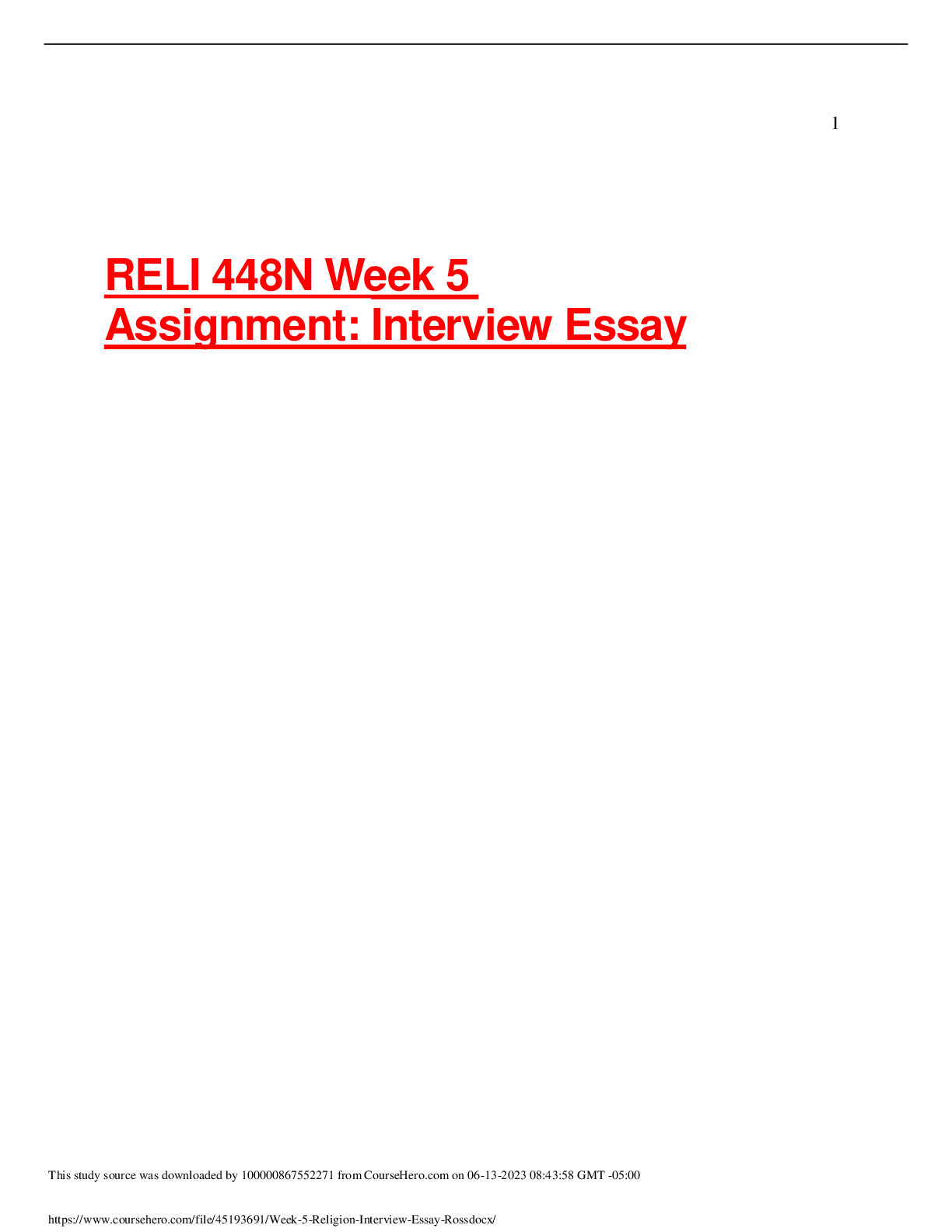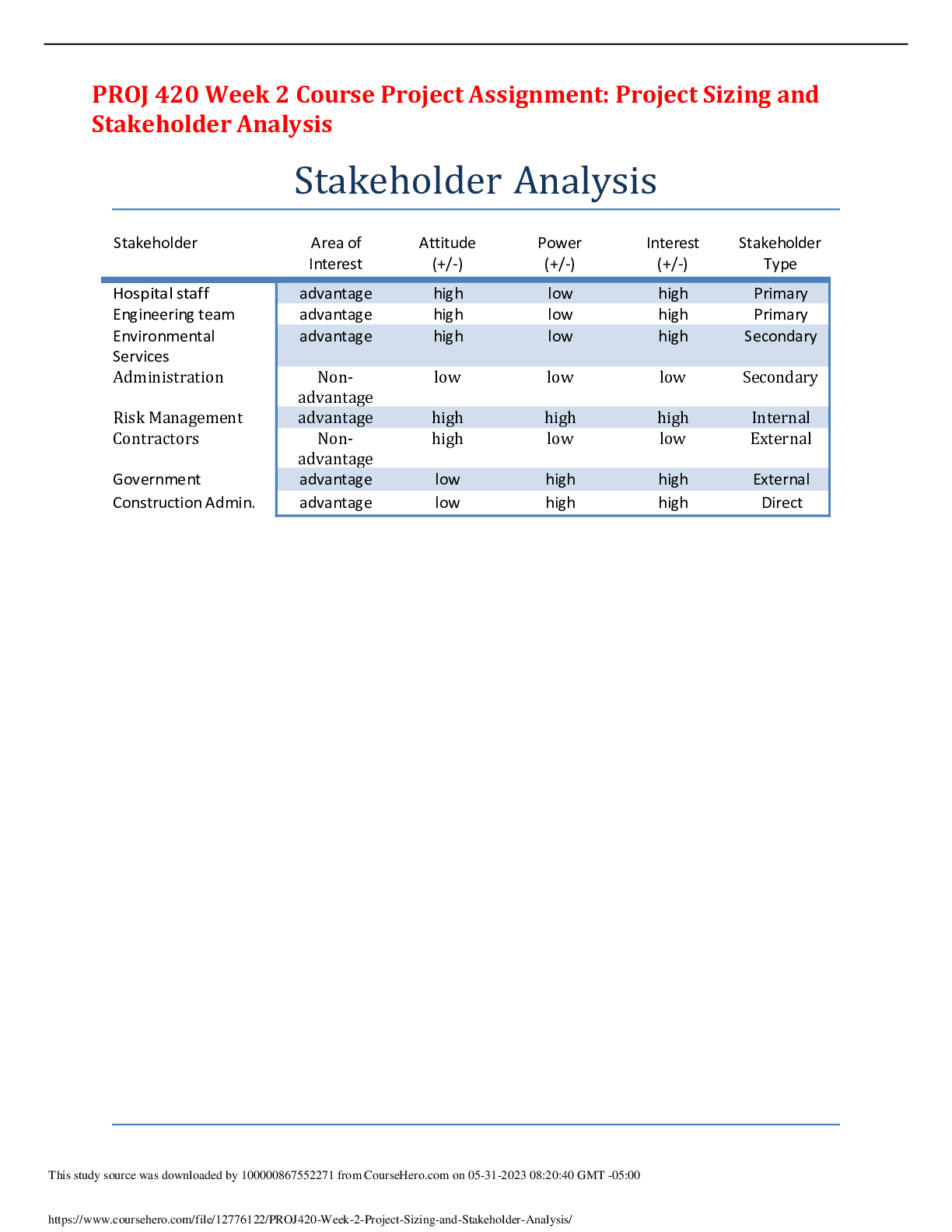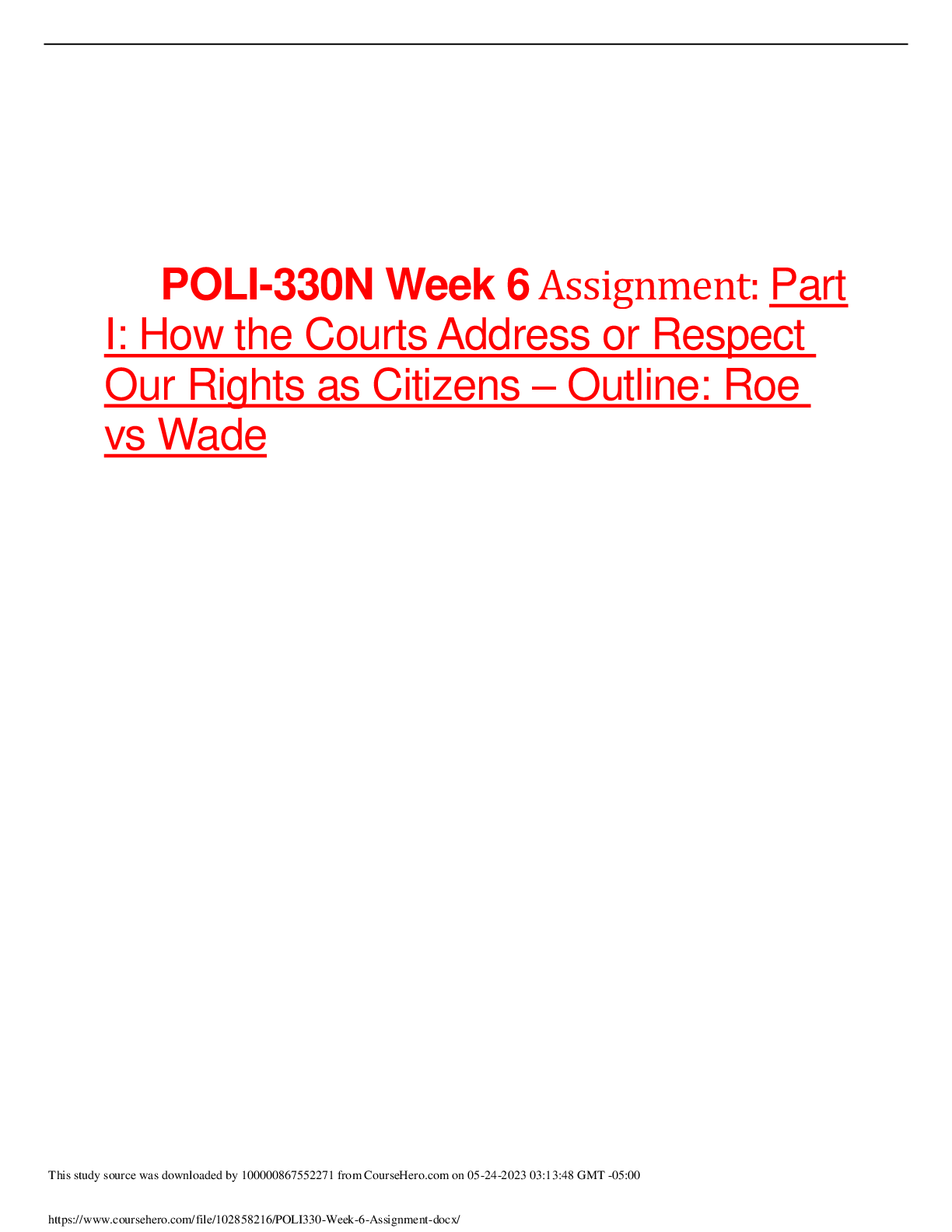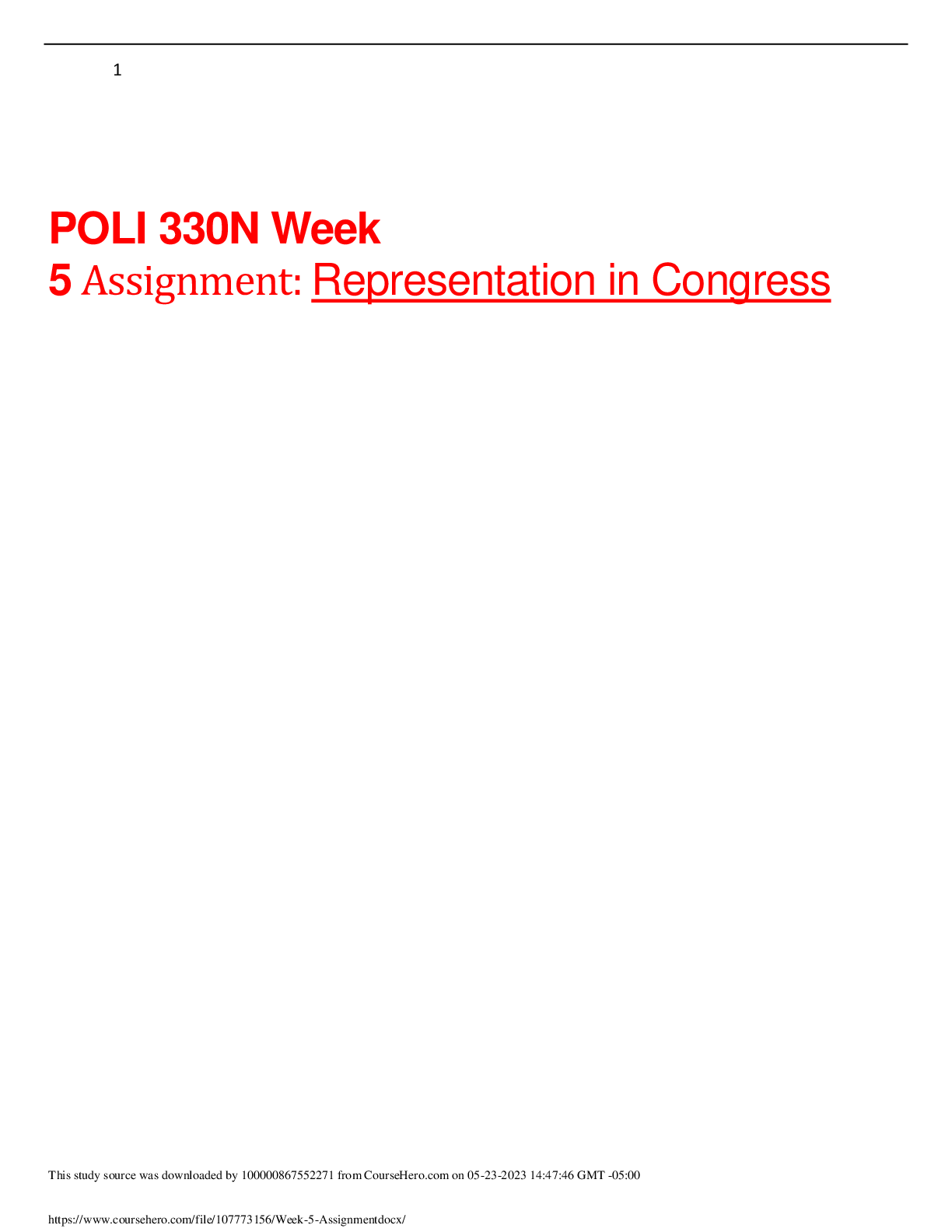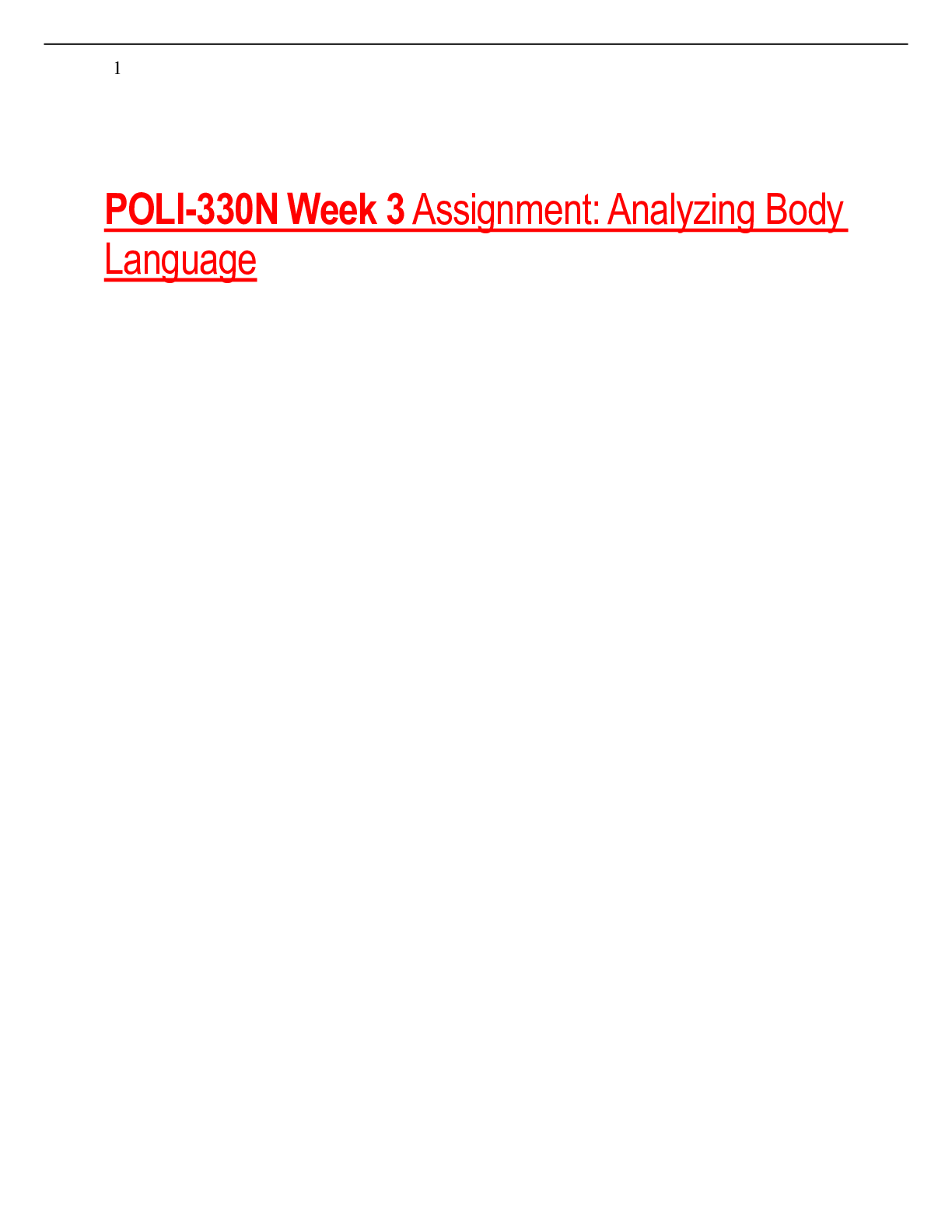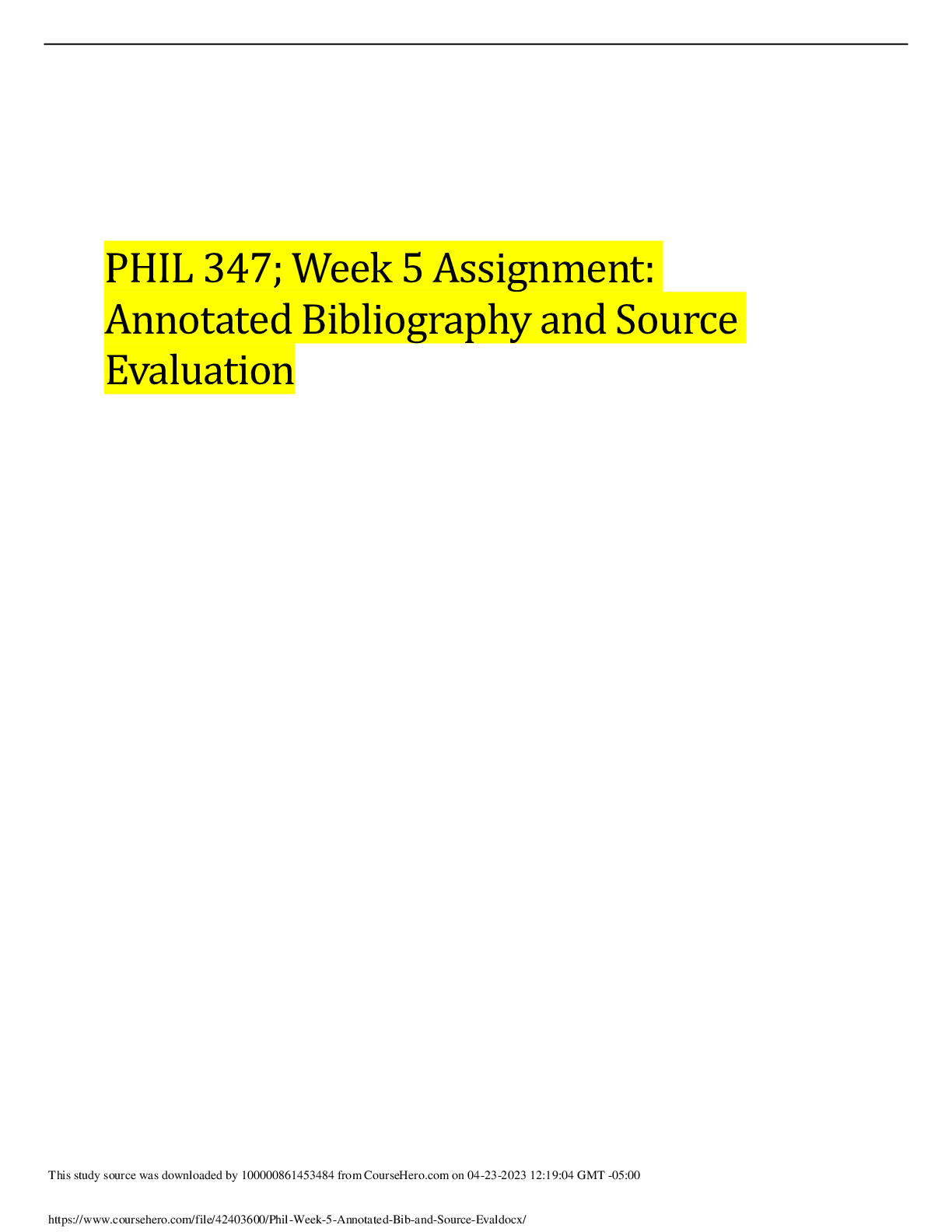Philosophy > ASSIGNMENT > PHIL-447N Week 2 Discussion Question 1 – Premises and Conclusions - Graded An A (All)
PHIL-447N Week 2 Discussion Question 1 – Premises and Conclusions - Graded An A
Document Content and Description Below
Let's spend some time sorting out the premises and conclusions in some examples. Choose one of the statements below. Your task is to identify the premise(s) and the conclusion(s) of your example an... d to negotiate among yourselves if you disagree. Additionally, discuss whether the premises or conclusions are valid. This exercise works best if students do not all choose the first example. If one example has been well discussed, choose a different example to discuss. Here are the examples: 1. Chances are I'll be carded at JJ's, because Kera, Sherry, and Bobby were all carded there, and they all look as though they're about 30. 2. Seventy percent of all freshmen at State College come from wealthy families; therefore, probably about the same percentage of all students at State College come from wealthy families. 3. I am sure Marietta comes from a wealthy family. She told me her parents benefited from the cut in the capital gains tax. 4. According to Nature magazine, today's thoroughbred racehorses do not run any faster than their grandparents did. But human Olympic runners are at least 20% faster than their counterparts of 50 years ago. Most likely, racehorses have reached their physical limits but humans have not. 5. "Let me demonstrate the principle by means of logic," the teacher said, holding up a bucket. "If this bucket has a hole in it, then it will leak. But it doesn't leak. Therefore, obviously, it doesn't have a hole in it." 6. We shouldn't take a chance on this new candidate. She's from Alamo Polytech, and the last person we hired from there was rotten. In reference to the statement “We shouldn't take a chance on this new candidate. She's from Alamo Polytech, and the last person we hired from there was rotten” the premise would be the last person that our company hired from Alamo Polytech was rotten. This is the premise because this is the statement within the statement that provides support for the conclusion. The conclusion for this statement is that we should not take a chance on the new candidate. This is the conclusion because it indicates what the statement is trying to convey. Moore, B. N., Parker, R. (01/2014). Critical Thinking, 11th Edition. [VitalSource Bookshelf Online]. Retrieved from https://online.vitalsource.com/#/books/1259611140/ I believe that the logical fallacy used in this scenario is post hoc, because one person thinks she’s rotten solely based that she comes from Alamo Polytech. The post hoc fallacy is when one even precedes another, hence, them saying she is from Alamo Polytech so she must be rotten because the last person was. In this week's lecture, we read about Socrates' concern for defining undefined terms as the first step in critical thinking. Choose one of the statements below. Your task is to determine how the term is used to define your chosen example, and whether the definition is by example, by synonym, by an analytical definition. If you experience difficulty in determining which method of definition is being used, describe the difficulty and try to negotiate agreement with other class members. This exercise works best if students do not all choose the first example. If one example has been well discussed, choose a different example to discuss. And here are the examples: 1. Decaffeinated means without caffeine. 2. Steve Martin is my idea of a successful philosophy major. 3. The Cheyenne perfectly illustrate the sort of Native Americans who were Plains Indians. 4. Data, in our case, are bits of raw information collected from survey forms, which are then put in tabular form and analyzed. 5. Bifocals are glasses with two different prescriptions ground into each lens, making it possible to focus at two different distances from the wearer. 6. Red is the color we perceive when our eyes are struck by light waves of approximately seven angstroms. “Decaffeinated means without caffeine.” Products always say that they are decaffeinated such as decaffeinated coffee which is in some ways misleading because coffee still has some little amount of caffeine, so it is not actually “decaffeinated.” But the real thing to think about here, with critical thinking skills is to remember that decaffeinated in our minds means no caffeine but in actuality, it still can mean that it has caffeine in it, just that some of the caffeine has been taken out. The definition of the first part of the word “de-“ most likely is defined as none, but in actuality “de-“ before a word means that something has been reduced none. I see it like dehydration. To “dehydrate” something means to take some of the water out of your body, but you still have some hydration in you, it’s just not as much because some were taken away. Decaffeinated can mean that some of the caffeine was reduced, but it is not to say that it was all taken away. According to the Moore an analytical definition is one that specifies the features that a thing must possess for that term being defined to apply to it (Moore, 2011). In the definition of decaffeinated means without caffeine yet the truth of this definition is difficult to implement. The description they gave us tells us that decaffeinated food and drink must not have caffeine in it. The issue is that the part of the definition of “de-“ means to reduce and sometimes, and in the case of coffee, the caffeine is not gone it is just less because it has been cut. So this would be an analytical definition because it is not necessarily true because its denial involves a contradiction being that just because it says it is decaffeinated doesn’t mean that it doesn’t have any caffeine left once some were taken out.” Moore, B., & Parker, R. (2011). Clear Thinking, Critical Thinking, and Clear Writing. In critical reflection (10th ed.). New York: McGraw-Hill [Show More]
Last updated: 11 months ago
Preview 1 out of 3 pages
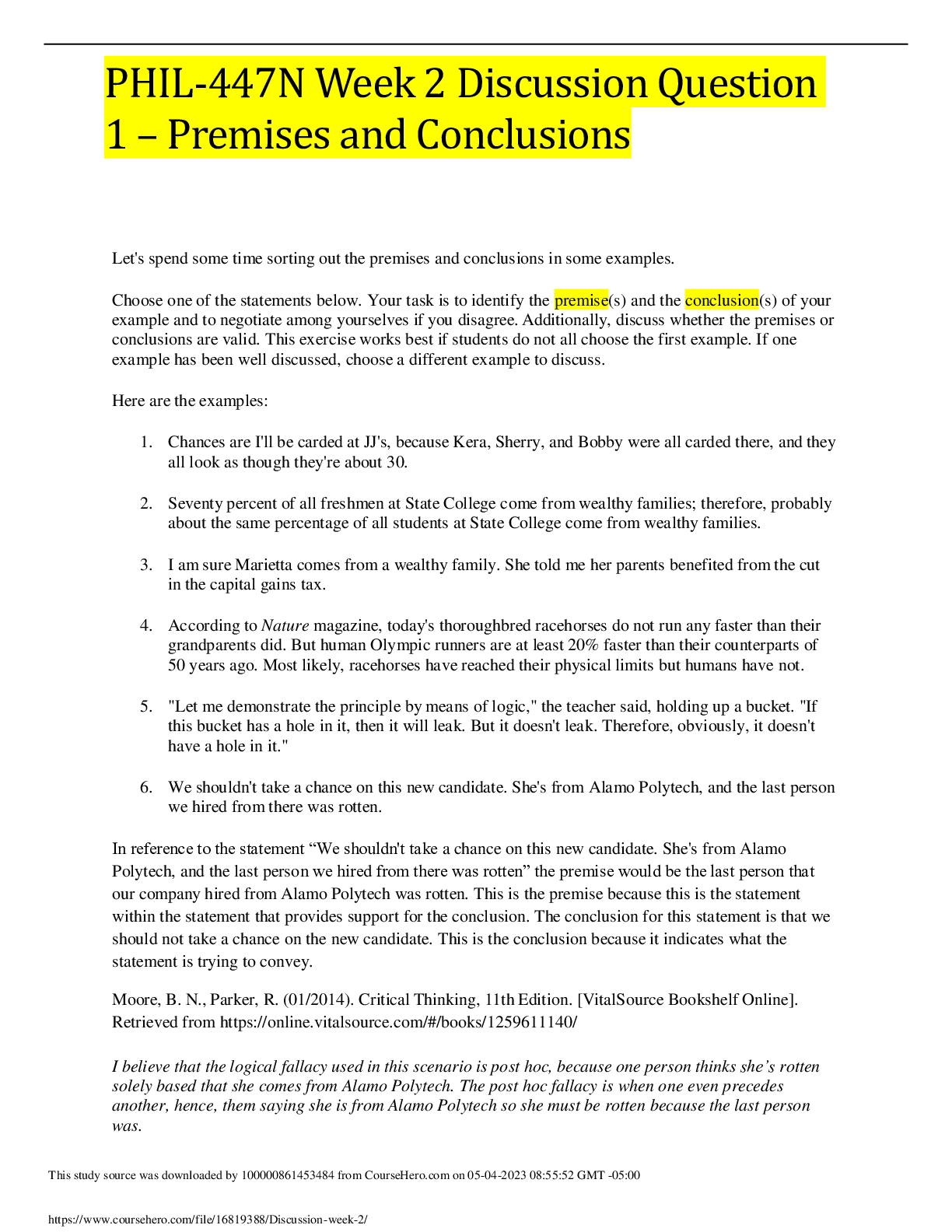
Reviews( 0 )
Document information
Connected school, study & course
About the document
Uploaded On
May 04, 2023
Number of pages
3
Written in
Additional information
This document has been written for:
Uploaded
May 04, 2023
Downloads
0
Views
40


